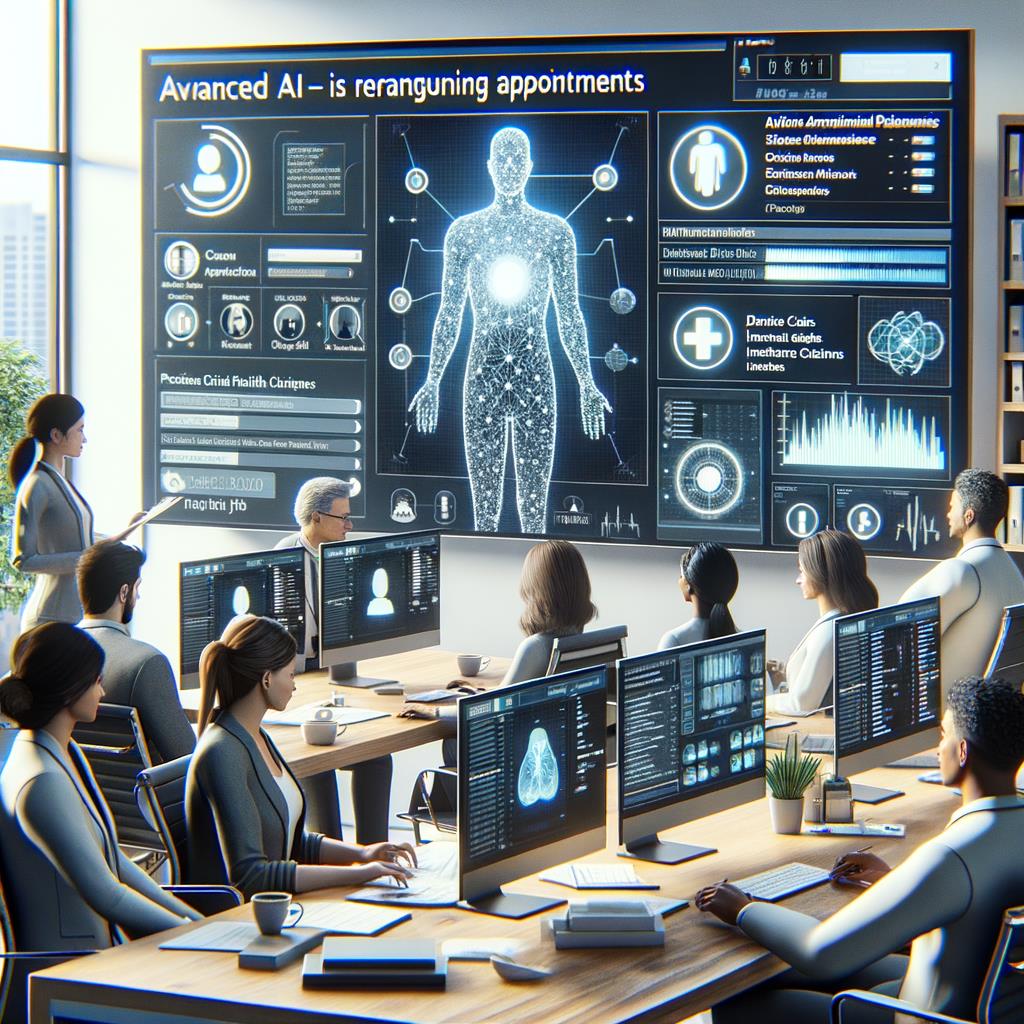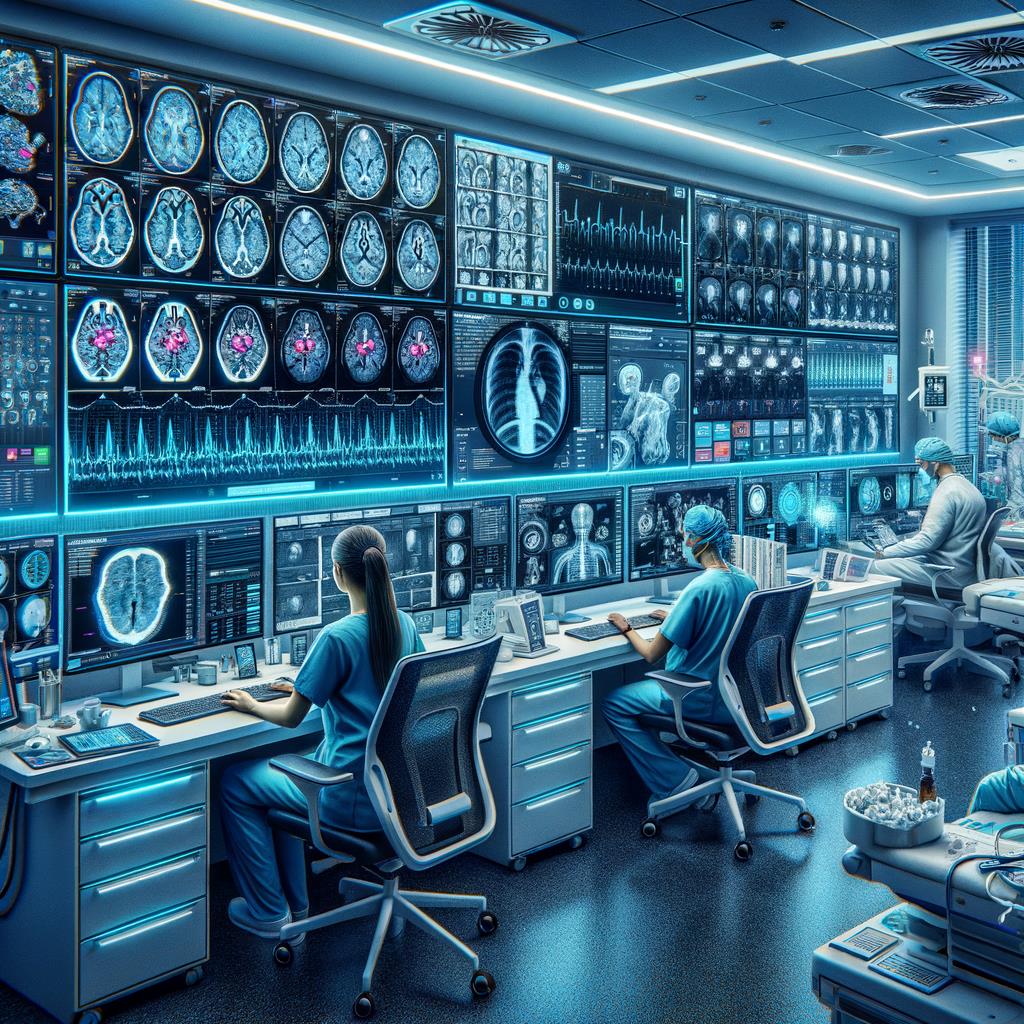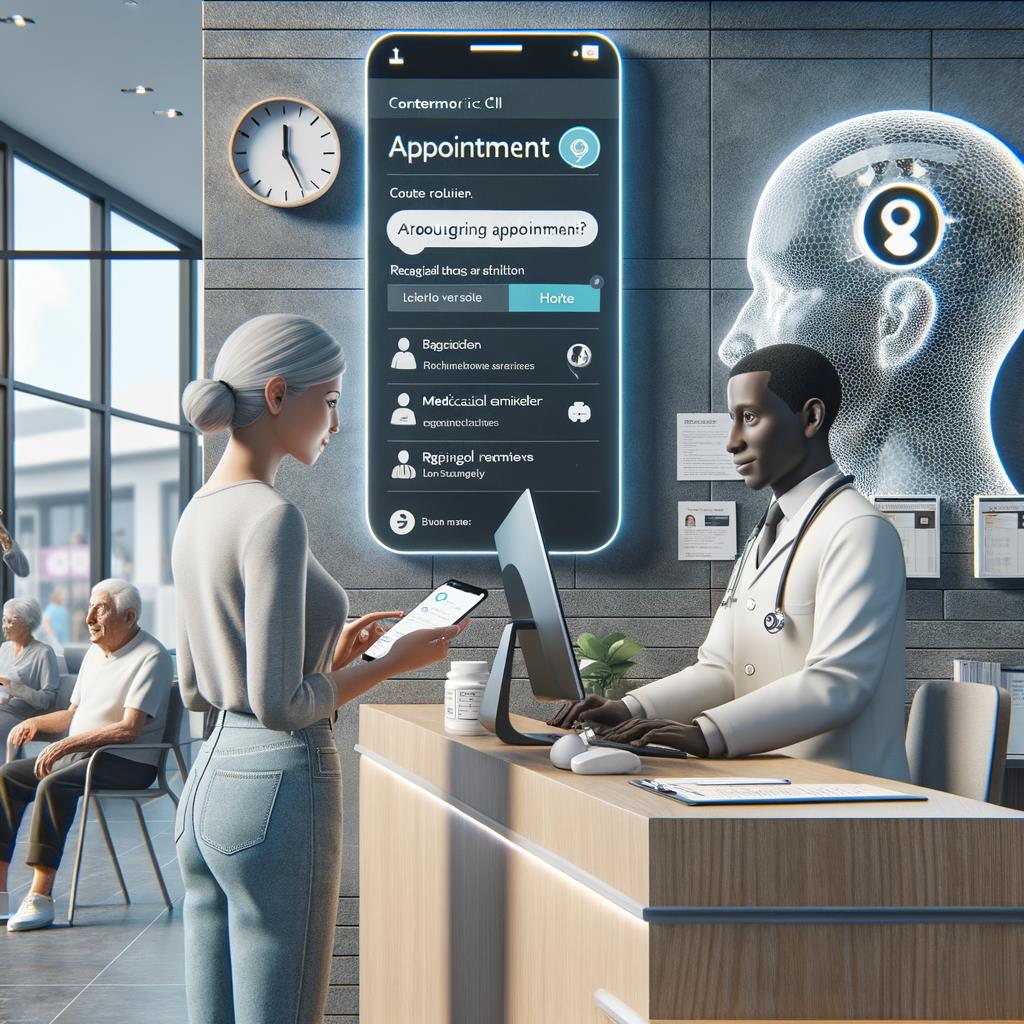The impact of AI in healthcare #
The Impact of AI in Healthcare
Artificial intelligence (AI) is revolutionizing many industries, and healthcare is no exception. In clinics, AI automation is transforming patient care delivery and operational management. By integrating advanced AI technology, clinics can streamline administrative tasks, improve diagnostic accuracy, and enhance patient engagement. This not only boosts operational efficiency but also elevates the overall quality of patient care. Understanding the impact of AI in clinics helps us appreciate the future of healthcare and its benefits for both medical professionals and patients.
Streamlining administrative tasks #

Streamlining Administrative Tasks
AI automation significantly reduces the administrative burden on healthcare professionals, transforming how clinics manage everyday tasks. By automating processes like scheduling appointments, updating patient records, and handling insurance claims, clinics can optimize efficiency and accuracy.
Imagine an AI-powered chatbot seamlessly rescheduling appointments based on patient preferences and physician availability. This reduces wait times and enhances patient satisfaction. Furthermore, AI systems can efficiently manage electronic health records (EHR), ensuring information is always up-to-date and easily accessible. This minimizes the risk of errors associated with manual data entry and allows healthcare staff to retrieve patient information quickly during consultations.
Insurance claims, often a time-consuming process, can be streamlined through AI, reducing administrative overhead and speeding up reimbursements. The integration of AI in these tasks boosts operational efficiency and alleviates the stress on healthcare workers, allowing them to concentrate on providing quality care. By automating routine administrative duties, clinics can operate more smoothly and effectively, ultimately benefiting both patients and healthcare providers.
Improving diagnostic accuracy #

Improving Diagnostic Accuracy
AI automation holds immense potential in enhancing diagnostic accuracy within clinics. By leveraging machine learning algorithms, AI can analyze vast amounts of medical data quickly and precisely. For instance, AI systems can scrutinize medical images such as X-rays, MRIs, and CT scans, often identifying anomalies that might be missed by the human eye. This is particularly beneficial in diagnosing conditions like cancer and detecting early signs of diseases such as diabetes.
AI's capability to process and interpret complex data extends beyond imaging. It can also analyze electronic health records (EHRs) to identify patterns and correlations that help predict potential health issues before they become critical. This proactive approach enables more timely interventions, improving patient outcomes.
Moreover, AI-powered tools can assist healthcare professionals by providing real-time decision support during medical procedures. For example, during surgeries, AI can offer insights based on real-time data analysis, helping surgeons make more informed decisions. This not only enhances the precision of surgical procedures but also reduces the likelihood of complications.
Incorporating AI into diagnostic processes not only boosts accuracy but also enhances efficiency. With AI handling initial data analysis, healthcare professionals can focus on interpreting results and planning the best course of action for their patients. This collaborative approach between AI and clinicians ensures a higher standard of care, ultimately leading to better patient health and well-being.
Enhancing patient engagement and experience #

Enhancing Patient Engagement and Experience
AI automation is transforming how clinics engage with patients, making interactions more personalized and efficient. AI-powered chatbots and virtual assistants provide patients with 24/7 support, answering questions, scheduling appointments, and sending reminders for medications and upcoming visits. This constant availability helps patients feel more connected and supported throughout their healthcare journey.
Personalized communication is another significant benefit of AI. By analyzing patient data, AI can tailor messages to individual needs, offering advice and motivational support for managing chronic conditions. For example, a patient with diabetes might receive customized tips on diet and exercise, helping them stay on track with their health goals.
AI also simplifies the onboarding process for new patients. Automated systems guide them through registration, helping them complete forms and understand clinic procedures. This streamlined experience reduces stress and confusion, making the first visit smoother and more welcoming.
Additionally, AI enhances the overall patient experience by minimizing wait times and optimizing appointment schedules. Patients are less likely to experience long delays, leading to higher satisfaction rates. These improvements in engagement and experience not only boost patient morale but also foster a stronger patient-provider relationship, ultimately contributing to better health outcomes.
Conclusion #
Conclusion
AI automation is revolutionizing clinics by streamlining administrative tasks, improving diagnostic accuracy, and enhancing patient engagement and experience. By automating routine duties such as scheduling appointments and updating patient records, clinics can operate more efficiently, allowing healthcare professionals to focus on patient care. AI's ability to analyze vast amounts of medical data ensures more accurate diagnoses and timely interventions. Meanwhile, personalized communication and 24/7 support from AI-powered tools significantly improve patient satisfaction. Embracing AI in healthcare not only boosts operational efficiency but also elevates the overall quality of care, ensuring better health outcomes for patients.
References #
References
- How AI Automation is Transforming Healthcare Delivery - Publication: Qventus, Inc. - Date: 2024-07-02 - Link: https://qventus.com/ai-automation-transforms-healthcare-delivery/
- Top 10 AI Automation Examples in the Healthcare Industry - Publication: Tars Blog - Link: https://hellotars.com/blog/top-10-ai-automation-examples-in-the-healthcare-industry
- How AI Automation is Revolutionizing the Healthcare Industry - Publication: Jorie.ai - Link: https://www.jorie.ai/post/how-ai-automation-is-revolutionizing-the-healthcare-industry
- Gen AI and Automation for Healthcare & Hospitals - Publication: Aisera - Link: https://aisera.com/solutions/industries/healthcare/
- The Role of AI in Hospitals and Clinics: Transforming Healthcare in ... - Publication: PMC - NCBI - Link: https://www.ncbi.nlm.nih.gov/pmc/articles/PMC11047988/



